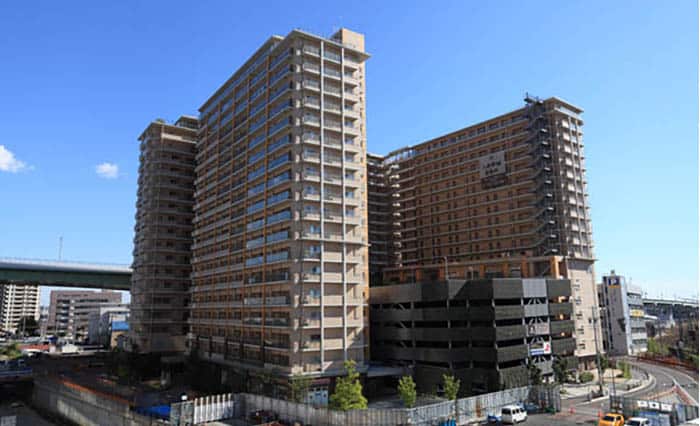
Royal Parks ER Sasashima West was one of AXA’s Nagoya deals
AXA Investment Managers says that its property investment division completed €9.7 billion ($11.7 billion) in real estate equity transactions on behalf of clients in 2020, up from €6.5 billion in 2019, with Asia Pacific accounting for a record 21 percent of capital deployed by its alternatives unit, led by investments in Japan.
The alternative asset arm of the French financial giant announced on Monday that its real estate equity assets under management exceeded €76 billion by year-end 2020, up 6 percent from a year earlier, and made up 48 percent of overall AUM of €157 billion.
Isabelle Scemama, global head of AXA IM Alts, said that while the COVID-19 pandemic shifted end-user and investor perspectives on real estate use, many of the changes seen in the last 12 months were an acceleration of themes that were already prevalent.
“Our strong conviction is that the general technological and urbanisation themes supporting our main conviction asset classes remain,” Scemama said. “We will therefore continue to invest in residential, logistics and life sciences through portfolio and asset acquisitions as well as via operational platforms.”
Beds and Sheds Drive Japan Activity
As AXA IM Alts continued to grow globally last year, Japan was once again the firm’s most active market in Asia Pacific with JPY 177 billion ($1.66 billion) invested, focusing on residential, logistics and data centres.

Isabelle Scemama of AXA IM
On the residential theme, AXA IM in 2020 identified further opportunities in Nagoya, Japan’s fourth-largest city and a favourite of the firm’s portfolio managers.
Last July, AXA IM revealed its JPY 20 billion acquisition of Royal Parks ER Sasashima, a three-building residential complex in Nagoya catering to young professionals and families. The purchase of the 46,068 square metre (495,872 square foot) structure marked the firm’s largest residential investment ever in Japan.
Within two weeks of the Royal Parks announcement came news that AXA IM had purchased the 171-unit Aden Imaike East near Nagoya’s Imaike subway station for JPY 20 billion. Built in 2007, the 5,965 square metre tower is aimed at young single occupants and dual-income couples.
The two Nagoya assets represent AXA IM’s fourth and fifth residential investments in the city, where earlier this year the firm also broke ground on a four-storey, 155,000 square metre warehouse facility with Hong Kong-based logistics developer ESR. The partners expect to invest a total of JPY 27 billion in the project by the time of its planned completion in April 2022.
Elsewhere in the country, AXA IM and ESR last August acquired a 151,501 square metre logistics facility near Tokyo for JPY 39 billion, just seven months after Amazon leased nearly half of the property. And in late 2020 the firm added a 20,000 square metre data centre in Tokyo for a purchase price of JPY 22 billion, plus a portfolio of apartments in the capital for JPY 70 billion.
Future of the Office
Despite muted demand for office investments during COVID-hit 2020, Scemama affirmed her belief that the traditional office would continue to act as the “bedrock of corporate life”.
“Human nature being what it is, I also feel that the longer the lockdown has continued the more diminished the appeal of working from home has become and that there is a real pent-up demand in society to get out and to interact once more,” she said.
Even so, Scemama pointed to the economic damage wrought by the pandemic and the resulting low interest rates as elements that would further enhance the appeal of alternative assets as a source of sustainable yields for investors.
Other investment managers have shown similar enthusiasm for alternatives like multi-family residential in Japan. For instance, PGIM Real Estate, an asset management division of US giant Prudential Financial, in 2020 acquired a six-building apartment portfolio across Tokyo and Yokohama valued at roughly $120 million.
The set of properties consists of newly completed mid-market residential buildings, with a total of 353 residential units, and will benefit from population growth and the migration of young working adults to Japan’s major cities, PGIM Real Estate said.
Leave a Reply